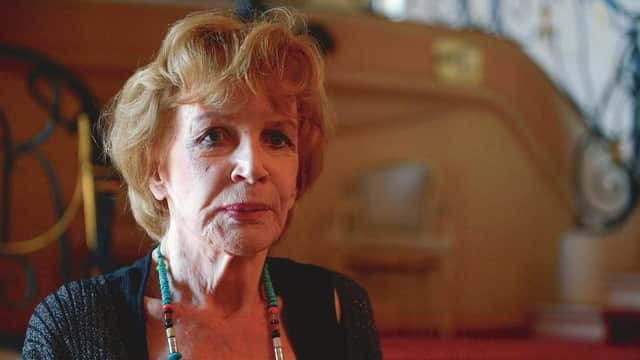Book review: James and Nora: A Portrait of a Marriage, by Edna O’Brien


Edna O’Brien first read Joyce – passages from A Portrait of the Artist as a Young Man – when she was a student in Dublin in the early 1950s. “Since then,” she says in the foreword to this book, “hardly a day passes but I read something of Joyce’s.” Golly, I thought, reading this: O’Brien must have read Joyce on more days than the man himself lived. But then I noticed that this foreword and the essays that follow were written in 1981 and published then in the USA, so she may not have kept up the almost daily reading for the last three decades.
If she has, Joyce would doubtless have approved, because he was even more selfish than most writers and said that his ideal reader should devote their whole life to his work. This may have been a joke. His wife Nora certainly wasn’t that reader. Indeed, she seems not to have read his books at all. This wasn’t a bad thing. Though some authors discuss their work with their spouses and even read it aloud, others, perhaps more sensibly, prefer not to have a literary critic as their life partner.
Advertisement
Hide AdIf she didn’t read his books and indeed resented the hours he spent writing them, Nora did read the letters he wrote to her and replied to his eager, indeed passionate, questions about the state of her knickers and her masturbatory habits when he was away from her. He was certainly inquisitive. The Spanish novelist Javier Marías thought that Joyce’s epistolary “interrogation” of Nora “resembles more than anything that of a Catholic priest in the confessional,” though it is clear that Joyce framed questions in the hope that Nora’s replies would be sexually arousing.
Nora had a hard time until, when at work on Ulysses (published in 1922 when he was 40) Joyce finally found patrons willing to support him in the style he demanded and, arguably, deserved. The couple were poor in their early years together and when he was working in a bank in Rome she often had to spend the day in a café or cinema with their young child until he had given a pupil a private lesson and collected the fee which would enable them to put up in a cheap hotel.
In any case, as O’Brien says, “writers are a scourge to those they cohabit with. They are present and at the same time absent.” They have “a longing to see into another person, but the longing is discharged into their work.” Nora was re-created as Molly Bloom and one suspects that Molly became more real to him than the woman he married after they had lived together for 24 years. Joyce had thought marriage “a monstrous institution” but “shelved his distaste so that his children could inherit his estate.” By this time what O’Brien recognizes as his “intense, obsessive, solicitous over-love had transferred itself to his children, particularly to his daughter, Lucia, who resented her mother, who shouted out loud that she was sex-starved.” Sadly Lucia became mad and had to be confined in a sanatorium, to Joyce’s distress.
Was it all worth it? Or was Joyce a writer who began brilliantly with Dubliners and Portrait and the first half of Ulysses and then ran out of material just about the time when, in his other life away from the desk, he and Nora are said to have stopped having sex? Later still, according to O’Brien, he said that “when he heard the word love he felt like puking.”
The last third of his life was devoted to the elaboration of Finnegans Wake which I have always found unreadable,though many years ago some passages read aloud when you were on the second bottle of wine made a splendid sound. Others think it a masterpiece, and almost 40 years ago Anthony Burgess took the podium in the Assembly Rooms in George Street and expounded its plot, or said he did.
O’Brien does James and Nora justice, and quoting lines from the end of Finnegans Wake asserts that “No man composed and decanted words that so utterly depict the true and desperate heart of a true and desperate woman.”Her essay is a tribute and an understanding one – to Nora as well as James.
James and Nora: A Portrait of a Marriage, by Edna O’Brien, Weidenfeld & Nicolson, 62pp, £6.99